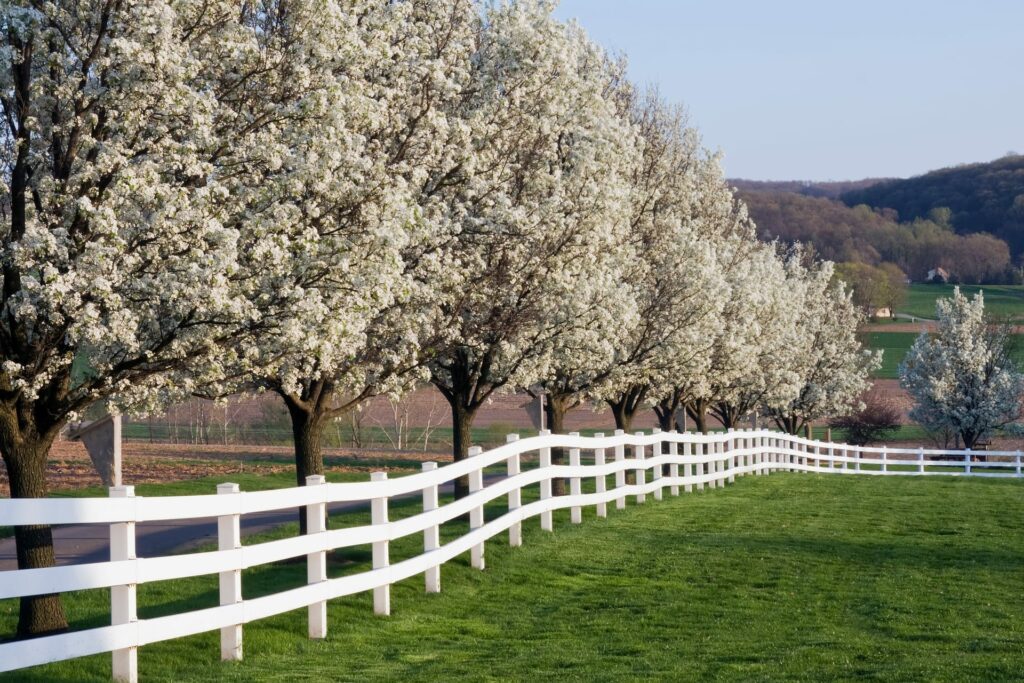A Guide to Selecting the Ideal Native Trees for Your Georgia Landscape
Georgia’s diverse climate and fertile soil provide the perfect environment for a wide range of tree species. Choosing native trees for your yard not only adds natural beauty but also promotes local biodiversity and provides a habitat for native wildlife. This guide aims to explore some of the most popular native trees in Georgia that you might consider for your yard, taking into account their characteristics, care needs, and benefits.
Why Choose Native Trees?
Native trees are species that naturally occur in a region and have adapted to its climate, soil, and local pests over thousands of years. They typically require less maintenance than non-native species and are more resistant to local pests and diseases. Additionally, native trees support local wildlife, including birds and beneficial insects, contributing to a balanced and thriving ecosystem.
A Selection of Georgia’s Native Trees

Here are some of the native tree species you might consider for your Georgia yard, each with its unique appeal and benefits.
Southern Red Oak (Quercus falcata)
The Southern Red Oak, also known as the Spanish Oak, is a fast-growing tree that can reach up to 80 feet in height. It’s known for its distinct, sharply lobed leaves and attractive red fall color. This tree is highly adaptable and can thrive in various soil types, making it a versatile choice for landscaping.
Flowering Dogwood (Cornus florida)
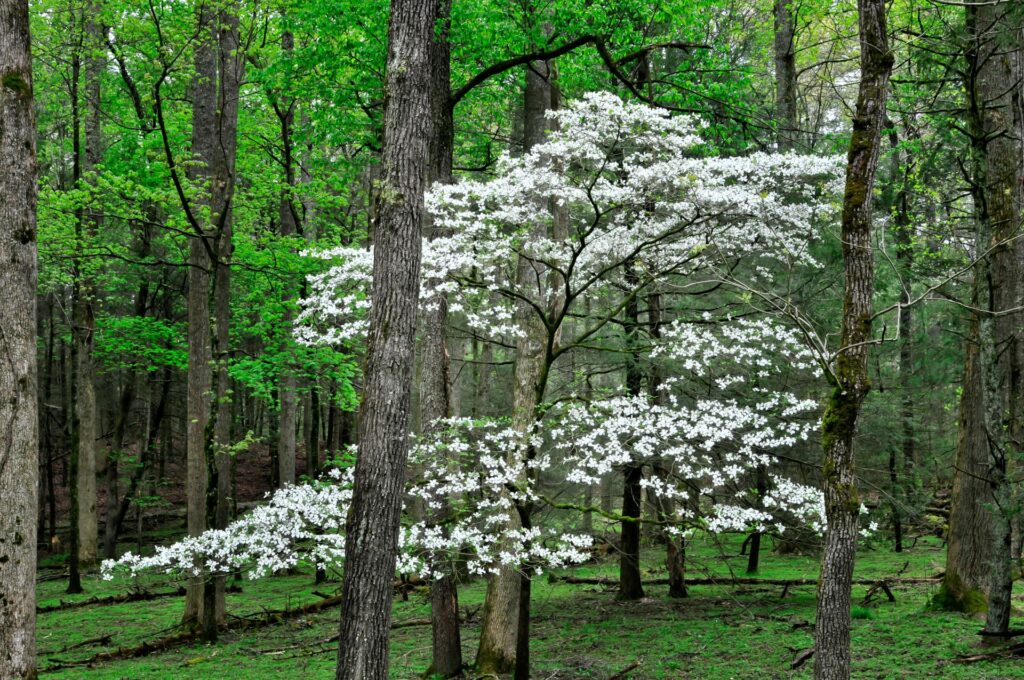
As one of Georgia’s most beloved native trees, the Flowering Dogwood is renowned for its stunning spring blooms. It grows to a moderate height of 20 to 30 feet, making it an excellent choice for smaller yards or under larger trees. This tree thrives in partial shade and well-drained soils.
Southern Magnolia (Magnolia grandiflora)
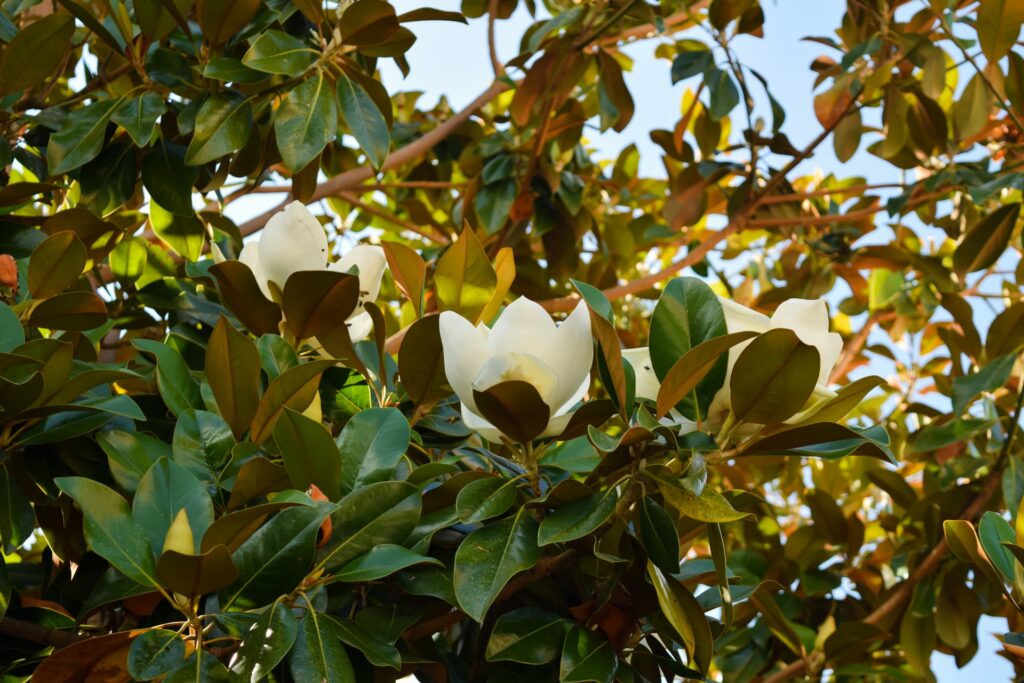
The Southern Magnolia is a symbol of the South, known for its large, glossy leaves and fragrant white flowers that bloom in the summer. It can grow up to 80 feet tall and prefers full sun and well-drained, acidic soil. With its evergreen foliage, the Southern Magnolia provides year-round color and interest in your yard.
Longleaf Pine (Pinus palustris)
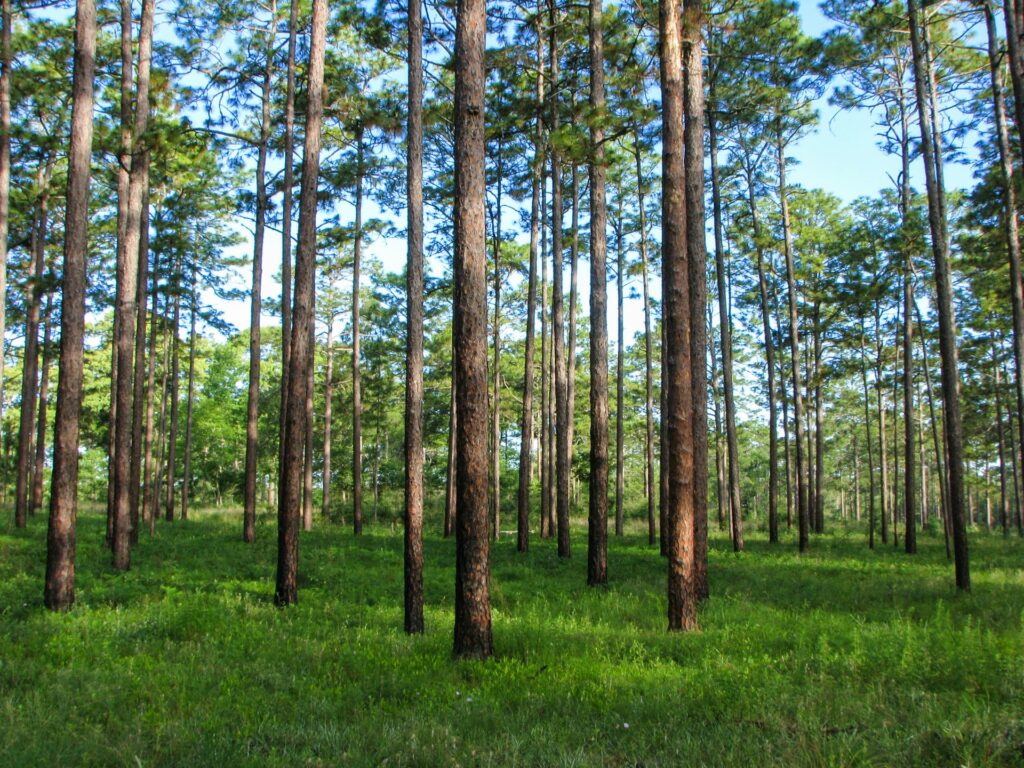
The Longleaf Pine is a distinctive native Georgia tree, recognized by its long, needle-like leaves and large pine cones. It’s a hardy and resilient tree that can grow in a variety of soil conditions, making it a great option for challenging sites. Plus, it’s an important habitat for several species of wildlife.
Red Maple (Acer rubrum)
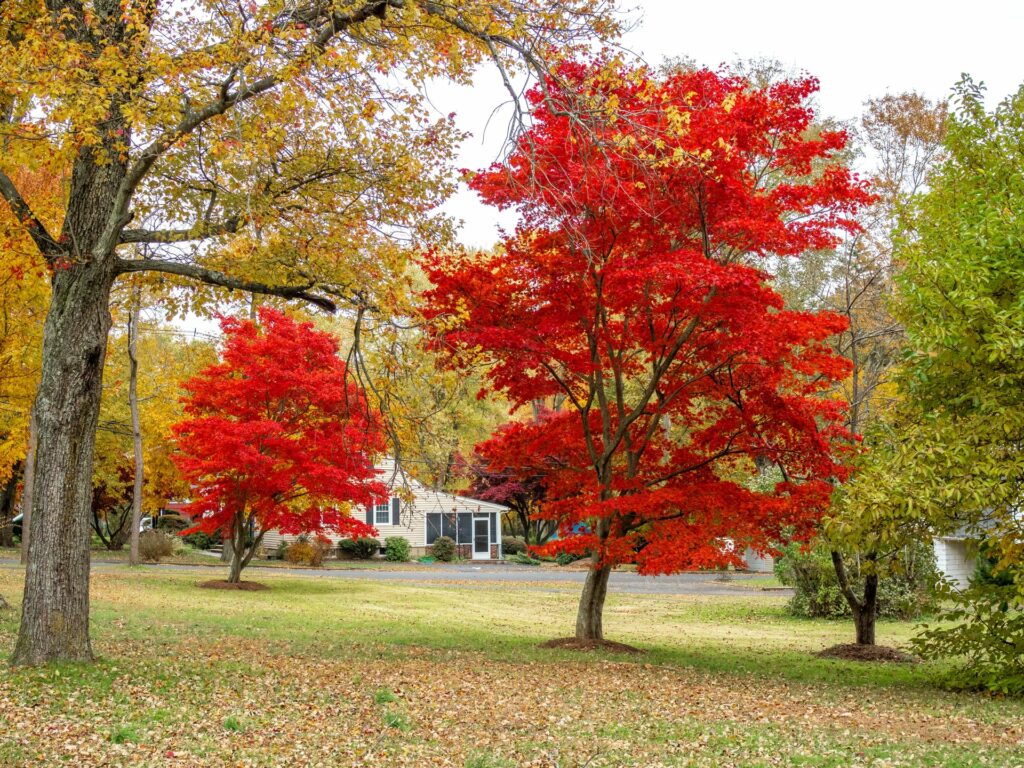
The Red Maple is a versatile tree that can tolerate a wide range of soil conditions. It gets its name from its vibrant red foliage in the fall, making it a beautiful addition to any yard. This tree can grow up to 60 feet tall and prefers full sun to partial shade.
Caring for Your Native Trees
While native trees typically require less maintenance than non-native species, they still need care to stay healthy and beautiful. This includes proper planting, watering, mulching, pruning, and protection from pests and diseases. If you’re unsure about any aspect of tree care, consider seeking advice from a professional arborist or your local extension service.
Conclusion
Choosing native trees for your yard can enhance your landscape’s beauty and contribute to local biodiversity. The Southern Red Oak, Flowering Dogwood, Southern Magnolia, Longleaf Pine, and Red Maple are just a few examples of the wonderful native trees you might consider for your Georgia yard. Each tree has its unique charm and characteristics, and with proper care, they can thrive and become a highlight of your landscape.
Remember that while native trees are generally hardy, they still require appropriate care and attention to thrive. If you’re unsure about the right species for your yard or how to care for them, don’t hesitate to seek advice from a professional arborist or a local extension service. Happy tree planting!

